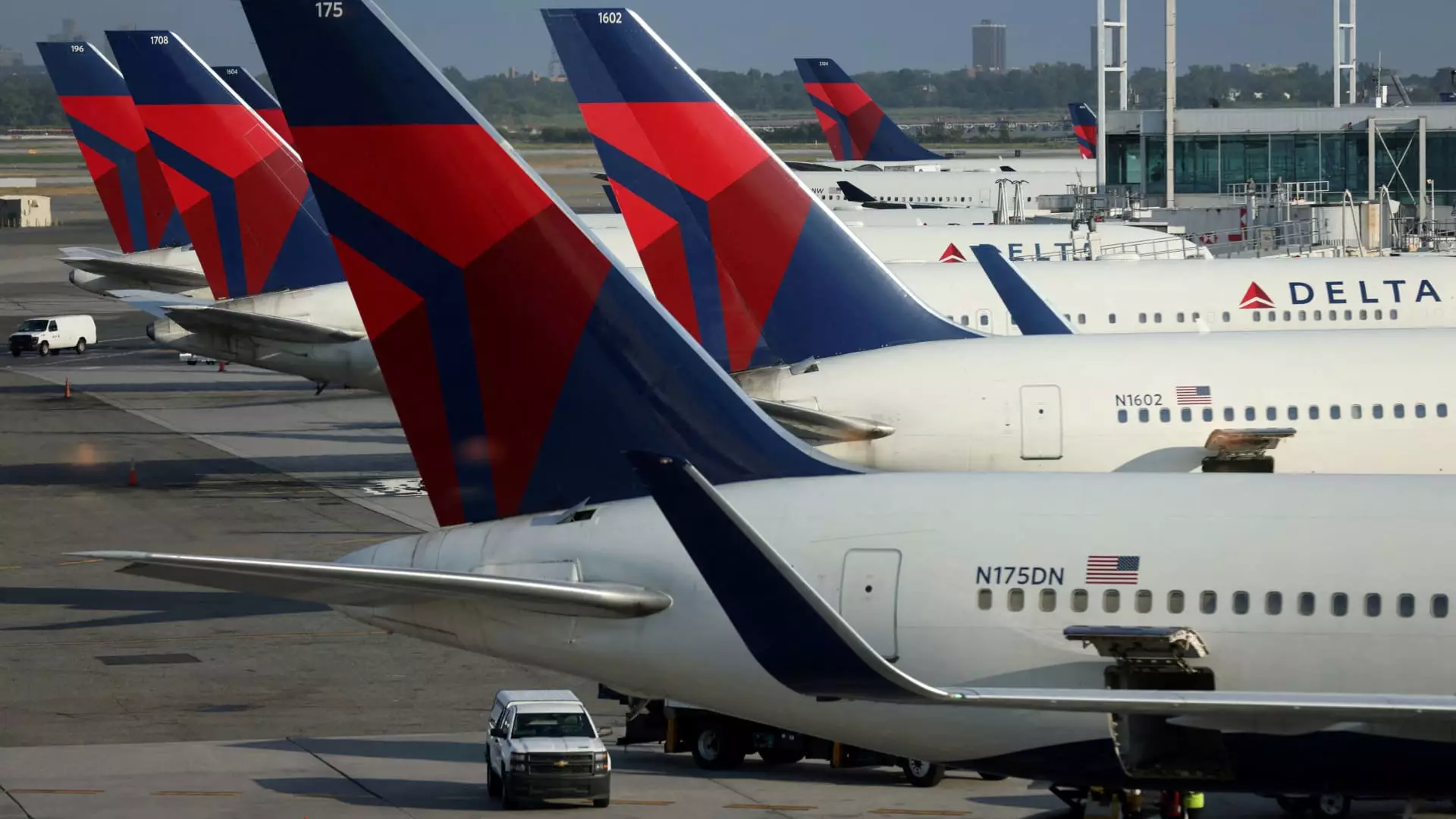In a significant legal move, Delta Air Lines has initiated a lawsuit against technology security firm CrowdStrike, following a devastating outage in July that severely disrupted operations. The incident led to a staggering number of flight cancellations—totaling around 7,000—and had a ripple effect on Delta’s revenues, resulting in reported losses of $380 million. Additionally, the airline incurred $170 million in related costs. This outage not only affected Delta’s operations but also raised eyebrows as several competing airlines managed to recover much more swiftly from similar disturbances.
Delta’s case hinges on allegations that CrowdStrike’s negligence and breach of contract were directly responsible for the catastrophic consequences of the software malfunction. The core issue lies in a flawed software update that disproportionately impacted systems running Microsoft’s Windows operating system. According to Delta’s claims, the update was not properly vetted, which led to significant operational failures. The lawsuit amplifies concerns about the due diligence and testing processes employed by CrowdStrike, suggesting that had proper testing protocols been executed, the malfunction could have been detected prior to deployment.
Legal Proceedings and Delta’s Demands
The repercussions of this incident have led Delta, underlining its commitment to accountability, to formally hire renowned attorney David Boies of Boies Schiller Flexner to spearhead its legal pursuits against both CrowdStrike and Microsoft. Delta’s legal strategy encompasses a demand for full restitution for financial losses, litigation expenses, and punitive damages. Within the court filings, Delta articulated a strong indictment of CrowdStrike’s practices, accusing the firm of prioritizing profit over rigorous security protocols, effectively undermining the safety of their software products.
Despite the turbulence, CrowdStrike’s CEO George Kurtz has publicly acknowledged the failure and extended apologies, stating that the company is committed to reforming its practices to avert future missteps. The incident serves as an important cautionary tale within the tech and aviation industries, highlighting the critical nature of effective software testing and the potential fallout from lapses in cybersecurity protocols. Industry dynamics are shifting, as Microsoft signaled an intent to engage in conversations with CrowdStrike and other security vendors to contemplate improvements that could enhance resilience against systemic risks.
As Delta’s lawsuit unfolds, the implications could be far-reaching, not only for the involved parties but across the technology and aviation sectors at large. The case underscores the necessity for software companies to adopt stringent testing protocols and maintain robust communication with clients to ensure their systems are not vulnerable to avoidable failures. With heightened scrutiny from regulatory bodies and potential for precedent-setting decisions, this legal battle will likely influence how vendors approach accountability and risk management strategies in the future. The aviation industry, while adapting to such challenges, will need to keep an eye on these developments to safeguard their operational integrity.

